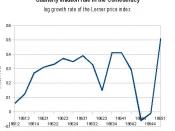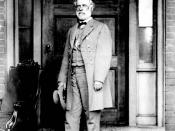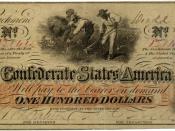The year is 1861, and the United States of America is divided in a Civil War. The Confederacy knows that in order to win it must gain foreign recognition, while the Union must prevent this at all costs. Foreign recognition was the leading reason on how the American Revolution was won, and many southerners knew this. Now, in the south's "second war of independence" it must convince either France or Great Britain to legitimately recognize the Confederate States of America as a country. At first, the secession was met with great anticipation in the Deep South, and soon caught popularity in Virginia, Arkansas, Tennessee and North Carolina, which considered breaking away from the union was like dropping some heavy burden. Parties and Banquets were held, marking the secession as a celebratory event, not something to worry about. The states were about to find out the consequences to come because of this break off from the Union.
Northern States were calling for the heads of Southern leaders who were soon labeled rebels and any Northern sympathizers were considered to be traitors to the Union. Both sides were ready to go to war, looking at it a short, 90 day war, but they were in for any extremely rude awaking. Meanwhile, in Europe, many countries were already picking sides in the upcoming conflict. Russia was the "youngest" of the group, and was siding closely with the Union. France, on the other hand, was siding with the Confederacy. Finally, the Super power at the time, Great Britain, was also siding with the Confederacy. With the stage set, it seemed that one small diplomatic spark can begin a war on a global scale, affecting every nation one way or another. While no country had directly entered the war, it would be the "youngest" of...


